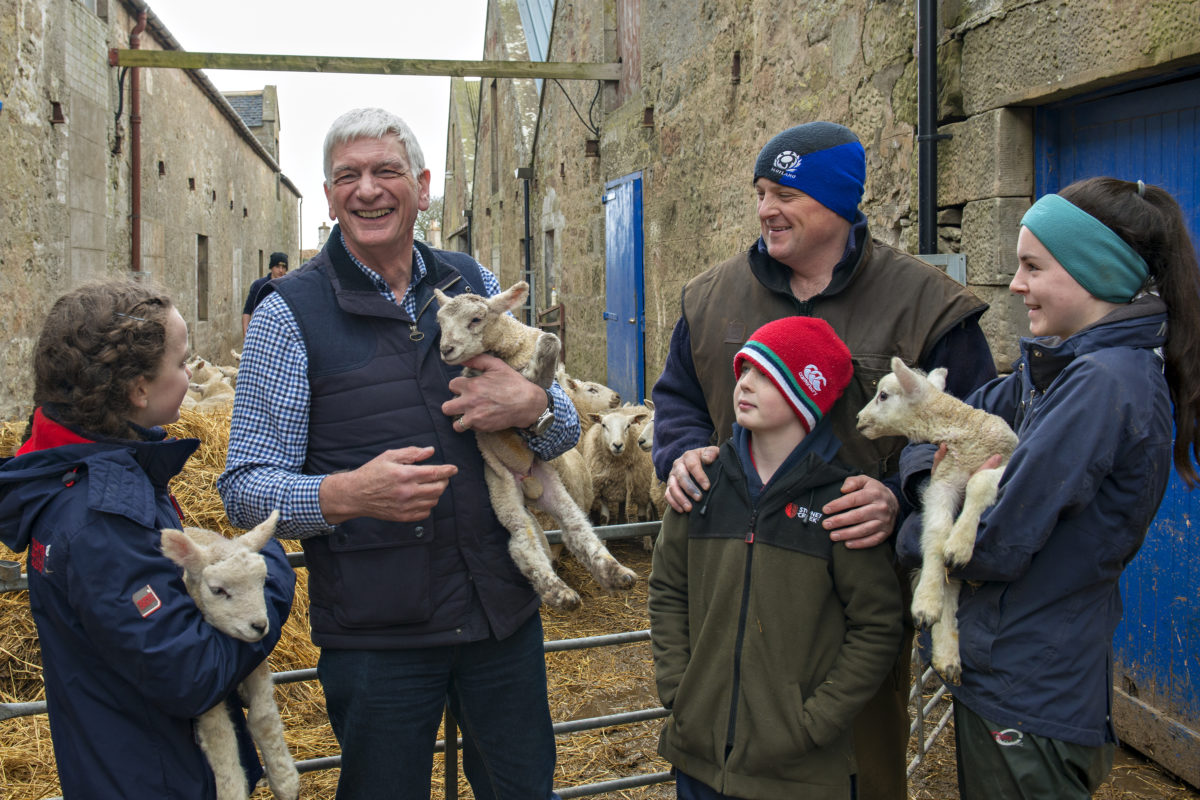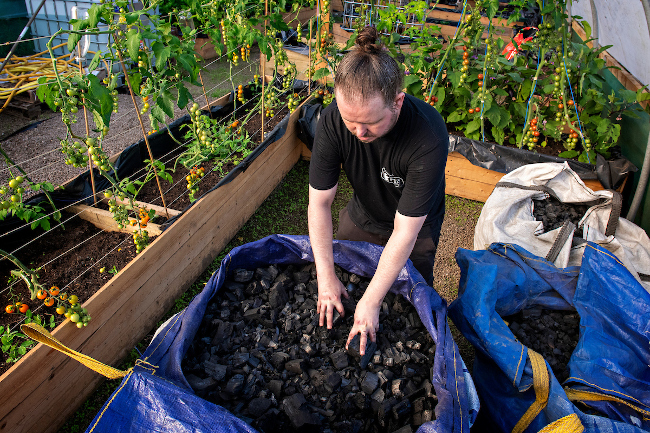Social Innovation Challenge – solutions to climate change challenges faced by rural communities in Scotland
To mark the launch of the 2022 Social Innovation Challenge (SIC), our SIC Programme Manager shares some of her insights with regard to issues and opportunities faced by rural communities as a result of climate change.
Redesigning the SIC
When we first embarked on the Social Innovation Challenge redesign, we knew we had two tasks ahead of us, the first of which was defining the process. In service design terms, we had to go through the whole double-diamond approach for the application and grant process. That meant understanding our current practices and our clients’ goals, before converging on the specific issues that we had to address to tailor the SIC to potential applicants’ needs. These were mostly linked to transparency of processes, broadening the eligibility criteria and a continuous offer of support. We also heard of the specific barriers and challenges faced by social enterprises operating within a rural environment. Building on this insight, we worked across teams to devise new ways of meeting these needs and converged once more on what we could realistically deliver as part of the 2022 challenge. The result of this is the newly launched Social Innovation Challenge.
Understanding the problem
Our second task was to try and really understand the problem that the programme seeks to address. The theme for the 2022 SIC was chosen in the wake of the 2021 United Nations Climate Change Conference (COP26), recognising that the effects of climate change are often felt disproportionately by those living in rural areas. Whilst we know that on a global scale rural communities face challenges linked to sustainable food production, extreme weather events and ecosystem disruptions, we also wanted to understand the specific issues that were being felt in Scotland.
During our research interviews, we spoke to a mixture of innovators, funders, support professionals, academics and social entrepreneurs. Fifteen out of the 23 individuals we spoke to lived in a rural area in Scotland and were happy to share their thoughts on the most pressing challenges that they were aware of, from both their personal and professional experiences.
General rural challenges included the struggle to keep services and goods locally, the rising costs of living and a lack of suitable affordable housing, as well as isolation and depopulation. There was also an element of frustration at local industries being in the hands of large or multinational companies that were disconnected from local needs. Whilst this allowed us to understand the big picture, we were particularly keen to zero in on the specific environmental, sustainability and climate change challenges.
Rural communities and climate change challenges
One of the strongest themes to come out of these conversations was that of fuel poverty. Access to clean, affordable and sustainable energy or heating was sparse in rural areas, an issue only made worse by the traditional housing stocks that often relied on fossil fuels. Furthermore, there seems to be a lack of retrofitting specialists available within the communities themselves, or willing to travel to remote rural areas to carry out retrofitting projects.
The general infrastructure and connectivity available in rural communities was also an area of concern, with transport being the largest issue. Even where active or green transport options were made available through local communities, the reality of the sparse geography and inadequate road provision made these initiatives less successful than they could have been. As such, decarbonising the rural transport provision was seen as a huge challenge, as well as an area of opportunity.
Changes in weather patterns did not go unnoticed either. We have heard stories of entire communities being completely isolated during many of 2021’s big storms. This has led to many of the individuals living in these communities considering ways of increasing their resilience in the face of these extreme weather events. Therefore, there was a drive towards becoming more sustainable and self-reliant through the use of renewable energy sources, as well as local services, food and products.
The links between climate change and agriculture or food production were also mentioned and went both ways. Whilst there was an awareness that unsustainable waste disposal practices were still taking place in certain areas and farming communities, and that the dairy industry has a big challenge ahead in terms of its decarbonisation, changes to fish populations and growing seasons due to climate change were also met with concern.

Finally, the culture and attitudes linked to climate change within rural communities were brought up during the research as key factors of potential success. Whilst there is a great amount of intuitive wisdom and connection to nature within these communities, as well as a strong sense of belonging and helping each other out, concepts like NetZero or innovative practices can struggle to get traction, particularly in very conservative communities, unless there are immediate benefits and effects to be seen.
Global and local inspiration
So where do we go from here? This is where the Social Innovation Challenge comes in. Whilst the problems we mentioned above can seem insurmountable, there are great examples of social innovation already taking place within Scotland and beyond.
For example, Takachar, a social enterprise that started up in New Delhi, has developed a low-cost portable device to convert agricultural waste into solid fuel, fertilizer, and other speciality chemicals. SolShare, based in Bangladesh, have found a way of enabling rural communities to trade solar power, reducing their emissions and boosting their household incomes. And over in Africa, SunCycles Namibia introduced e-bikes to help rangers patrol and protect conservation areas.
From our own portfolio of supported organisations, it is worth mentioning Sustainable Thinking Scotland, Clean Water Wave and Woodside Arran. As well as providing fantastic examples of innovative solutions to pressing challenges, these case studies will highlight the passion and commitment that are behind their success.

Join our network and find out more
So what is your take on these challenges? Do you have an innovative solution that could benefit a rural community in Scotland? Or perhaps you already run a social enterprise, or want to form a partnership, to deliver a new project to tackle some of these issues? The Social Innovation Challenge will be inviting applications from individuals, social enterprises or new partnerships that have an innovative solution to climate change challenges faced by rural communities in Scotland.
Applications will open on 3 August and we have an online webinar on that day to give you more information on the Challenge eligibility and criteria, as well as provide you with some inspiration and an opportunity to ask any other questions you may have. We would like to encourage all potential applicants to use the next two weeks to start thinking of their potential ideas and what further guidance or information you might need before filling in and submitting an application. You can come along to our Launch Event on 3 August to ask us your questions, or you can book some time in with the SIC Programme Manager using this link.
However, all the guidance and the Application drafting form are already available online, so if you already have an idea that you think is good to go, you can make a start on drafting an application ahead of the opening date. Make sure to register for updates to be the first to hear about upcoming information and support events.

